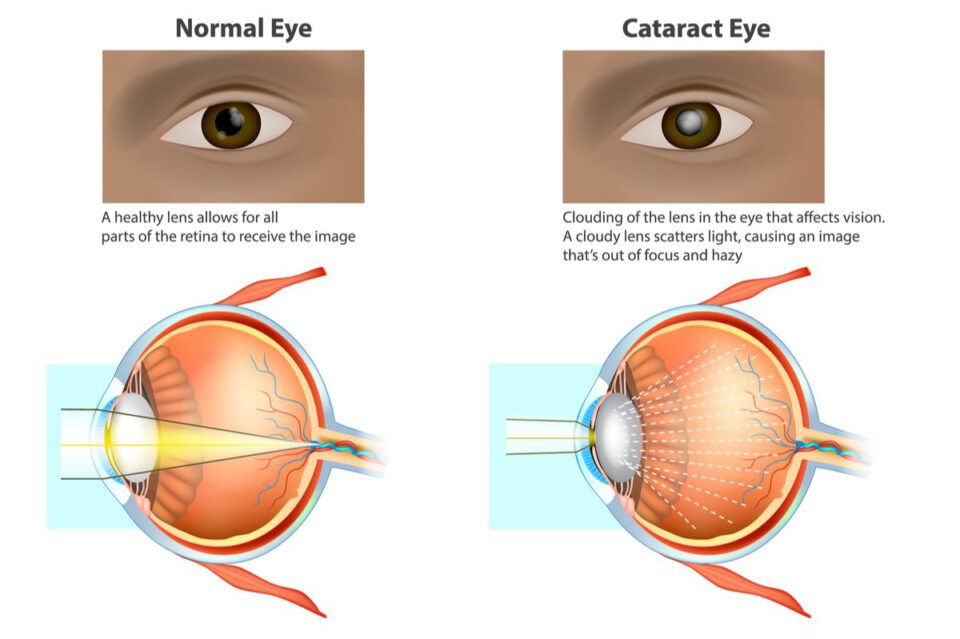Typically an outpatient surgery, cataract surgery removes the clouded lens and replaces it with an artificial lens. The cataract is treated by removing the clouded lens and replacing it with a new artificial one. The surgery can be a lifesaver in that it can significantly improve vision and reduce the risk of complications. If left untreated, the disease may lead to permanent blindness. A surgical procedure like this is not the best choice for everyone, though.
Unlike a traditional surgery, cataract surgery requires a tiny incision in the eye. During the procedure, the doctor uses an ultrasonic probe to break apart the clouded lens into liquid. This liquid then is sucked away. A saline solution is used to replace the fluid. This keeps the anterior chamber from collapsing. Fortunately, there is no recovery period needed after this type of surgery. However, it is important to remember that cataract surgery is a serious and complex procedure.
Although most people don't notice the effects of cataract surgery, they do experience blurred vision and difficulty seeing in bright light. This condition can cause vision loss, especially in the close-up area. In some cases, the symptoms may indicate other eye problems, such as glaucoma or macular degeneration. As you age, cataracts can interfere with other treatments for other eye problems. Therefore, it is important to seek an early diagnosis and treatment for this problem.
Cataract symptoms are usually mild and tolerable at first. If the disease is not treated early, symptoms may take months or even years to appear. During this time, you may notice the following signs: your eyes become hazy, your eyes begin to experience glare, and your vision becomes blurry. Light from lamps and the sun may appear dazzling, and colors may not look as bright. Site https://codewebdao.com/ warns that if you have advanced cataracts, your pupil may appear light gray.

Most cases of cataracts are age related. This happens when the lens becomes cloudy, making it difficult to see clearly. The main symptoms of cataracts are blurry vision, distorted or blurred vision, and decreased vision. Cataract symptoms can vary, and surgery is not always required. For small children, the operation is painless. Older children may have itchy eyes for a few days afterwards.
Symptoms of a cataract depend on the size of the cataract. Small, early stage cataracts may not affect vision immediately. The symptoms may take months or even years to become noticeable. Patients may need more light to see clearly, or they may require reading glasses. If the cataract has reached a later stage, the pupil will appear light gray. Eventually, the vision of a person with a large cataract will be blurred or even dimmer.
The symptoms of a cataract can vary, but the general symptoms of a cataract are not life-threatening. In fact, they will generally disappear after a few weeks. Once the disease has reached its late stages, the cataract may cause more severe symptoms. If the symptoms occur too quickly, it can affect daily life. The best way to deal with a cataract is to consult a doctor immediately. The sooner you see a doctor, the better your chances of finding the right treatment for you.
The process of removing a cataract is a surgical procedure, which involves a handheld ultrasonic probe that breaks up the cloudy lens and removes the cortex. The lens is replaced with an artificial lens. If the lens is cloudy, the surgery takes about thirty to 45 minutes, and the patient can go home the same day. The recovery time is about a week and a half. This means that patients can go home the same day after the surgery.
A cataract may be asymptomatic or painful, and there are many treatments to relieve the symptoms. Some doctors prescribe eye drops to reduce the risk of a cataract. A specialist may also give you an injection of anesthetic to reduce the risks of a surgery. In some cases, a patient may have a definite diagnosis of a cancerous eye. A medical professional can help you determine whether your symptoms are caused by a cataract.
About the author